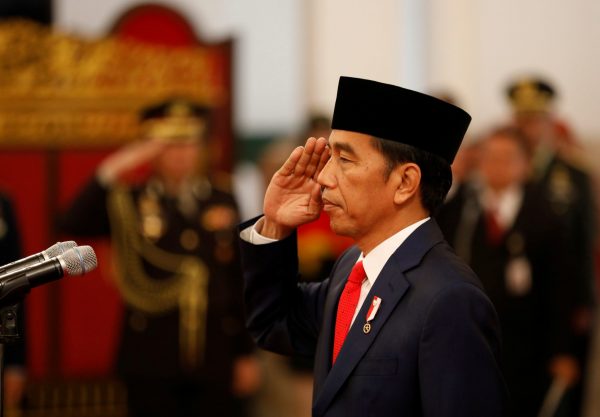Given the shifting political allegiances among the 20 political parties that are contesting the general elections and the presidential race, the emergence of other contenders cannot be ruled out. A likely third presidential candidate is Anies Baswedan. Anies defeated his predecessor Basuki Tjahaja Purnama (Ahok) in a controversial election that saw month-long protests and Ahok accused of blasphemy by Muslim groups.
On 4 July 2018, the Islamist Prosperous Justice Party (PKS) declared that Anies will run as a presidential candidate from their Party. After aligning itself with Prabowo’s Gerindra for the past five years, PKS is ready to break this alliance and nominate its own presidential candidate.
PKS’s performance during the recently concluded simultaneous regional elections — in which candidates backed by the Party won seven out of 17 contested gubernatorial races — seems to have emboldened PKS cadres about the Party’s prospects during the 2019 general elections for the legislature. This has likely motivated PKS to consider contesting the parallel presidential election on their own.
That PKS is considering this has triggered several frenzied meetings between PKS and Gerindra officials. On 8 July, the parties declared that Anies will serve as Prabowo’s vice-presidential nominee. Yet Tifatul Sembiring, a former PKS general chairman, announced two days later that the Party is ready to break away from the Gerindra–PKS coalition if Prabowo fails to select a PKS-backed vice-presidential nominee.
This indicates that no firm agreement has been settled between the two parties. PKS is still considering the possibility of nominating its own presidential candidate — likely with Anies as the Party’s nominee. Earlier this year, PKS held discussions with both the National Awakening Party and the National Mandate Party to form an Islamist alliance between the three parties. This idea could be revisited should PKS decide to end its alliance with Gerindra and nominate its own presidential candidate.
Meanwhile, for some time President Jokowi has considered Tuan Guru Bajang (whose real name is Muhammad Zainul Majdi) as his vice-presidential nominee. Like Jokowi, Majdi is considered a successful local executive. He completed two consecutive terms as governor of West Nusa Tenggara and made the province an internationally renowned Islamic tourist destination.
But in the end Jokowi chose Mahfud MD (the former chief justice of the Constitutional Court) to be his vice-president, as he is perceived to be more loyal to his camp while also having strong Islamic credentials.
Jokowi also seeks support from other religious leaders — mainly Nahdlatul Ulama (NU) clerics — to boost his re-election chances. On 10 July 2018, 100 Islamic clerics from The Young Ulama Solidarity Group for Jokowi (Samawi) announced their support for Jokowi’s re-election. The group is chaired by Aminuddin Ma’ruf, a former general chairman of the NU-affiliated Indonesian Islamic University Students Association.
The Alumni 212 groups, organised under the banner of the National Movement to Guard Ulama’s Religious Edicts (GNPF Ulama) — also held another ulama conference in Jakarta on the same weekend. It was endorsed by Rizieq Shihab, the supreme leader of the Islamic Defenders Front. Supporters said the conference was attended by 10,000 Islamic clerics — although sources said only about 1,000 clerics actually attended. The meeting endorsed Prabowo Subianto as the group’s presidential candidate, to be paired with either Uztadz Abdul Somad (a popular televangelist with 3.7 million followers on Instagram) or Salim Segaf Al Jufri (Chairman of PKS’s Board of Religious Advisors).
Apart from these presidential aspirants, other key players like former president Susilo Bambang Yudhoyono and his Democrat Party will play an important role in the coming months. The Democrat Party may either align itself with one of the leading presidential candidates or sponsor its own candidate, who would likely be Agus Yudhoyono — the eldest son of the former president.
Prabowo meanwhile appears to have settled on Sandiaga Uno, a billionaire and a long time Gerindra politician who is currently Anies Baswedan’s deputy in Jakarta Metropolitan Province. PKS and GNPF Ulama have reportedly threatened to walk away from Prabowo’s coalition and form an Islamic coalition with PAN and PKB. Sources now indicate that, instead of Anies Baswedan, their likely presidential nominee is retired general Gatot Nurmantyo, to be paired with PKB chairman Muhaimin Iskandar as their vice-presidential nominee. Whether this pair will also be declared later remains to be seen.
Dr Alexander R Arifianto is a Research Fellow with the Indonesia Programme, S. Rajaratnam School of International Studies (RSIS), Nanyang Technological University (NTU), Singapore.
A version of this article was previously published here on RSIS.

